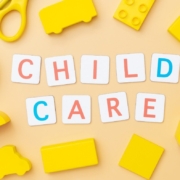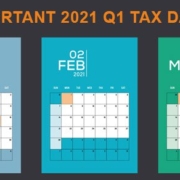Charitable Deduction Rules Change Under CARES Act
- Discover how the CARES Act has made 2020 a good time to increase your charitable giving.
- Find out how changes made to charitable deduction limitations affects contributions made in 2020.
- Learn how the charitable deduction limit on “apparently wholesome food” changed for C Corporations.
- Learn how the government defines“apparently wholesome food.”
- Find out how limits on charitable deductions for food inventory changed for all other businesses.
In light of the novel coronavirus (COVID-19) pandemic, many businesses have an interest in donating to charity. In order to incentivize charitable giving, the Coronavirus Aid, Relief and Economic Security (CARES) Act made some changes to the rules concerning charitable deductions. Fiducial has two changes that affect businesses.
Charitable deduction limits for corporations have increased
Before the CARES Act, the total charitable deduction that a corporation could generally claim for the year couldn’t exceed 10% of corporate taxable income (as determined with several modifications for these purposes). Contributions over this 10% limit may carry forward for use during the next five years (subject to the 10%-of-taxable-income limitation each year).
What changed? Under the CARES Act, the limitation on charitable deductions for corporations (generally 10% of modified taxable income) doesn’t apply to qualifying contributions made in 2020. Instead, a corporation’s qualifying contributions, reduced by other contributions, can be as much as 25% of taxable income (modified). Also to note: No connection between the contributions and COVID-19 activities is required.
The charitable deduction limit on food inventory has increased
At a time with such increased unemployment, your business may want to contribute food inventory to qualified charities. In general, a business may receive a charitable deduction for making a qualified contribution of “apparently wholesome food.” This particular contribution must go to an organization that uses it for the care of the ill, the needy or infants.
The government defines “apparently wholesome food” as food intended for human consumption. Therefore, it must meet all quality and labeling standards imposed by federal, state, and local laws and regulations. Food qualifies even if not considered readily marketable due to appearance, age, freshness, grade, size, surplus, or other conditions.

Before the CARES Act, the aggregate amount of such food contributions that could be taken into account for the tax year generally couldn’t exceed 15% of the taxpayer’s aggregate net income for that tax year from all trades or businesses from which the contributions were made. This was computed without regard to the charitable deduction for food inventory contributions.
What changed? Under the CARES Act, for contributions of food inventory made in 2020, the deduction limitation increases from 15% to 25% of taxable income for C corporations. For other business taxpayers, it increases from 15% to 25% of the net aggregate income from all businesses from which the contributions came.
CARES Act questions
Be aware that in addition to these changes affecting businesses, the CARES Act also made changes to the charitable deduction rules for individuals. Have questions about making charitable donations and securing a tax break for them? Call Fiducial at 1-866-FIDUCIAL or make an appointment at one of our office locations. We can explain the rules and compute the maximum deduction for your generosity.
Ready to book an appointment now? Click here. Know someone who might need our services? We love referrals!
For more small business COVID-19 resources, visit Fiducial’s Coronavirus Update Center. You will find information on SBA loans, tax updates, the Paycheck Protection Program, paid sick and family leave, and more.








